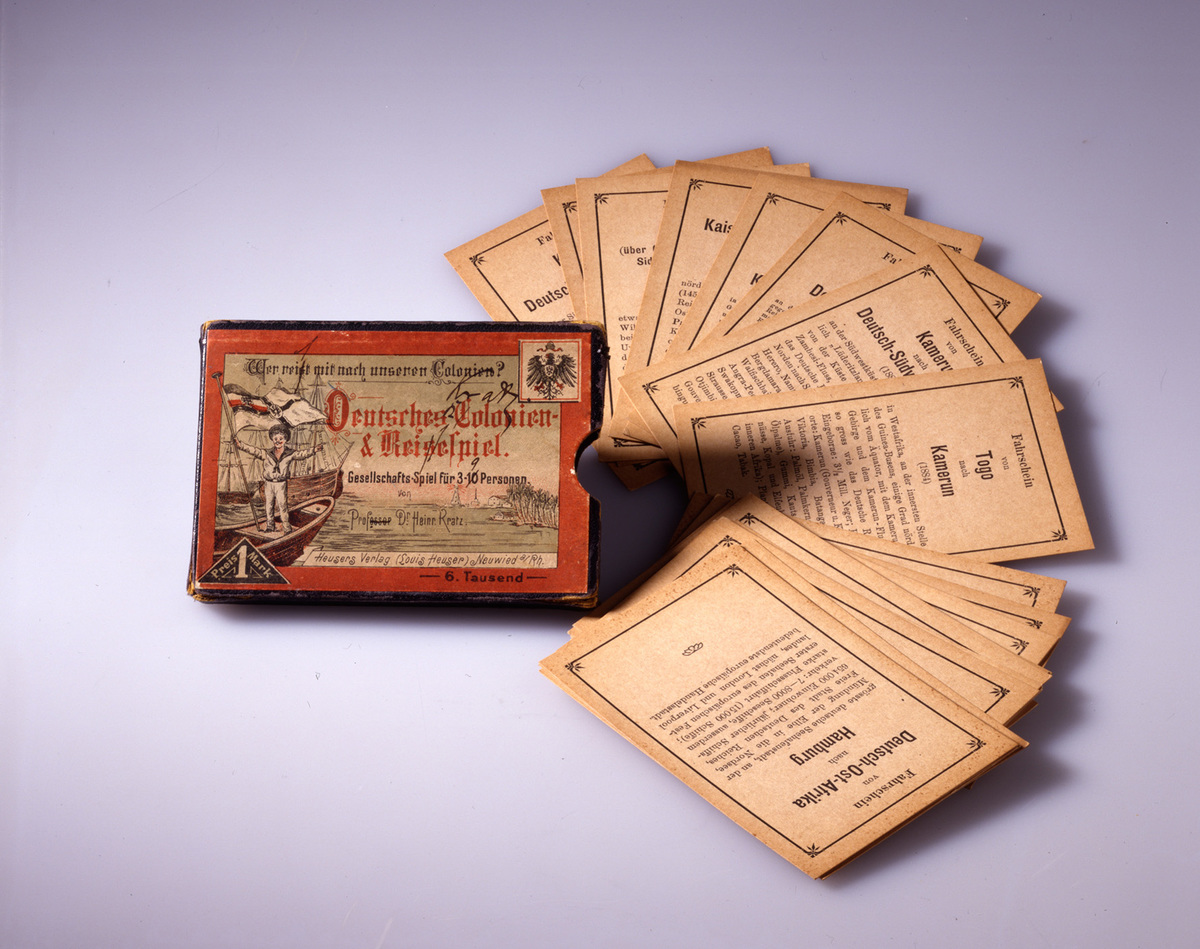Playing Colonialism (c. 1900)
Abstract
Parlor games introduced colonial thinking and domination fantasies into everyday life in an unobtrusive way, much like the numerous colonial novels that appeared during the Kaiserreich or Imperial period. Those who entertained themselves with the “German Colonial and Travel Game” jumped into an exotic world that was different and exciting but controllable. It was much easier to maintain a self-image of superiority in a parlor game than in real-life encounters with others—the latter often revealed the fragility of perceived dominance and therefore also led to violence.
Source

Source: German colonial and travel game, Inv.-Nr. Ak 94/584, Deutsches Historisches Museum/A. Psille. Published on the cover of Birthe Kundrus, Moderne Imperialisten. Das Kaiserreich im Spiegel seiner Kolonien. Böhlau: Cologne, Weimar, 2003.
© Deutsches Historisches Museum, Berlin
Further Reading
Nina Berman, Klaus Mühlhahn, and Alain Patrice Nganang, eds., German Colonialism Revisited: African, Asian, and Oceanic Experiences. Ann Arbor, MI: University of Michigan Press, 2018.
Sara Friedrichsmeyer, Sara Lennox, and Susanne Zantop, eds., German Colonialism and its Legacies. Ann Arbor, MI: University of Michigan Press, 1998, pp. 107–24.
Bradley Naranch and Geoff Eley, eds., German Colonialism in a Global Age. Durham, NC, and London: Duke University Press, 2014.
Michael Perraudin, Jürgen Zimmerer, and Kate Heady, eds., German Colonialism and National Identity. New York: Routledge, 2011.